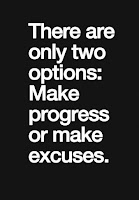sábado, 23 de abril de 2016
4TH GRADE. FARM FOOD
In fourth grade we are learning about the differnt types of food crops you can find on a farm. After learning and discussing this we planned our own restaurant menu including the items grown on a farm.
Take a look at the delicious menu items the children have created.
Try and play this interactive game below about food!
FOOD COMPUTER GAMElunes, 18 de abril de 2016
My senses
In our preschool classes we have done an activity about the five senses. Each student brought an apple from their home to class. We touched the apple to examine it, smelled it, listened to the sound it made as we bit into it and then tasted it.
Then, we stamped half of the apple in our book and worked on the color purple. It was so much fun!


VIDEOS WITH TIPS TO IMPROVE YOUR ENGLISH TODAY!
Below, you can find several links to videos with tips and advice to improve your English!
"LET´S TALK" -- 6 Tips To Improve Your English Fluency
Listen to Niharika
explains simple steps you can take daily to improve your English language
comprehension.
"SPOKEN
ENGLISH TIPS" -- Why Isn´t My English Improving?
Listen to Rachna
discuss common pitfalls and reasons why your English might be at a standstill.
This PowerPoint
style video from Crown Academy of English provides more useful tips!
Here, YouTuber
Julian answers questions about the best ways to learn and remember new words
How To Write a CV in English
The CV you present to potential employers could make or break your chances of being hired by the company. It is extremely important to create a well-organised and professional CV (or resume) that you can feel confident about sending to prospective companies. The information is not always in the same order (as you will see in one of the examples below), but I have listed the information below according to the order you commonly see in American resumes.
EXAMPLE C:
A basic CV will always contain the following pieces of information:
1. Personal contact information: Full name, address, phone number, and email address.
2. Objective: This is a statement that clearly says what your professional goal is.
3. Information about your education: Dates and locations for each of the schools you have received a degree from (starting with high school), as well as information about your studies -- did you focus on any areas, in particular, in your high school program or college experience?
4. Work Experience: Names, dates and locations for each of the companies you have previously worked for; as well as what title you held, what your main job duties were, and any significant accomplishments you made during your time with that company.
5. Skills: These are mainly professional (but also some personal) skills that will make you an amazing candidate for the position. Focus on tangible skills like: "Experienced in both Windows and Mac OS" or "Intermediate English Speaking skills," for example.
6. References: Most employers will want the name of at least 3 professional references they can call, to find out more about you. Sometimes as employer will OK personal references on a resume (like friends or relatives), but the majority of the time, employers are looking for references from previous superiors, bosses, or trustworthy colleagues.
Here are 3 examples of common templates used to create CVs or resumes:
EXAMPLE A:
EXAMPLE B:
EXAMPLE C:
domingo, 10 de abril de 2016
CAMBRIDGE EXAMS

Here you will find the vocabulary that you have to study for the test , a speaking example and a test to practice online for the Cambridge exams.
STARTERS
This video helps you understand what happens in the Speaking test.
MOVERS
This video helps you understand what happens in the Speaking test.
FLYERS
This video helps you understand what happens in the Speaking test
KET
KET:Reading and writing (Check your answers at the same time you are doing the test.Once the test has finished you will not be able to check them.) Reading and writing answer key
KET: Listening test (Check your answers at the same time you are doing the test.Once the test has finished you will not be able to check them.)Listening answer key
viernes, 8 de abril de 2016
3rd GRADE. GRAMMAR REVIEW
This year we have learned the verb "to be" and "have got". We have also learned the prepositions of place and how to tell time in English. Below, you will find some material to review these grammar items as well as some games to play at home.
HOW TO USE THE VERB "TO BE":
PLAY THIS GAME TO SEE IF YOU KNOW HOW TO USE THE VERB "TO BE"
THE VERB "TO BE"HOW TO USE THE VERB "TO HAVE GOT":
LET´S SEE IF YOU CAN SAY WHAT TIME IS IT:
WHAT TIME IS IT?STUDY PREPOSITIONS OF PLACE WITH THIS GAME:
PREPOSITIONS OF PLACElunes, 4 de abril de 2016
This is my foot!
In this unit we are learning the parts of the body. We did a very fun activity in order to learn foot-feet. Take a look below at the pictures below.
We have learned a very cute song. We hope you like it as much as we do!
We have learned a very cute song. We hope you like it as much as we do!
Suscribirse a:
Comentarios (Atom)




























